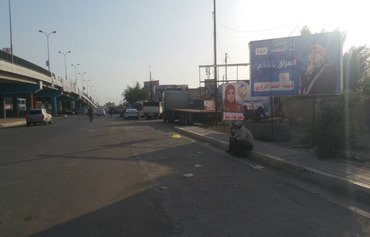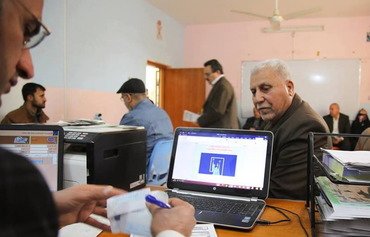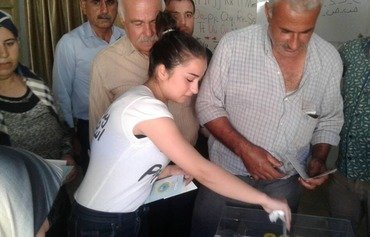A significant number of highly qualified female candidates are competing for a seat in parliament in Iraq's upcoming elections, set for May 12th.
"Many voters are now confident in the qualifications and capabilities of female candidates to effectively run the country and lead the reconstruction and reform efforts," said Manal al-Mutassem, a candidate for the Iraqi Decision Coalition.
"These are not merely slogans but reality," she told Diyaruna. "Iraqi women have proven themselves capable of leading all aspects of government and have earned the people’s respect."
As women take on more active roles in society, al-Mutassem said, this has prompted "many female candidates to enter the race for parliament".
She expressed confidence in women's abilities to enact change and address thorny issues that have been plaguing the country for years.
"We cannot wave a magic wand, but as women we cannot stand idle and will do everything we can to achieve what the people want in terms of services, reconstruction and in every other sector," she said.
Voters must choose carefully
Al-Mutassem called on voters to choose candidates carefully by reviewing their accomplishments to learn what they have done in service of their country.
"The right choice spells the beginning of change," she said.
Under the Iraqi electoral system, women have a 25% quota of parliament seats.
A total of 2,592 women are running for office across the country, approximately 35% of the total number of candidates, which is 7,367.
Women have a large responsibility to find solutions and usher in a better future, said Zainab Omar Mohammed al-Siraj, a candidate for the Solidarity Coalition.
"The problems are many and complex, but we believe that if we work together, men and women, hand-in-hand, we will be able to overcome all the obstacles," she told Diyaruna.
Al-Siraj stressed the importance of supporting "female breadwinners as well as those affected by terrorism and violence".
"Our goal is to do whatever we can for these segments and stand by them because they deserve significant attention and care," she said, expressing her hope that women will be better represented in the next government.
"Women have a strong presence in parliament, and the same has to go for the executive branch," al-Siraj added.
'Influential role for women'
"We hope the women entering the political arena will bring about radical change that is in the public interest," said Leila al-Barazanchi, MP for the Patriotic Union of Kurdistan.
"We do not want a marginalised presence that just ticks a box," she told Diyaruna. "We would rather like to see an active and influential role for women."
"Women have achieved numerous accomplishments in Iraq’s journey thus far, and this is only the beginning," she said, noting that women will continue to make contributions towards developing their communities.
Aziz Abid, 53, of Baghdad's al-Baladiyat neighbourhood told Diyaruna that he will cast his vote for the most qualified candidate, regardless of their gender.
Many female candidates have a long history of serving their country, he said, adding that he "would not hesitate to vote for one of them" to represent him in parliament.
Ruaa Hassan, 37, of Baghdad's al-Dora neighbourhood, told Diyaruna she will give her vote to the most suitable and qualified candidate, expressing her hope that more women will take up senior positions in government.

![A significant number of women are running for public office in Iraq's upcoming parliamentary elections. [Photo circulated on social media]](/cnmi_di/images/2018/05/08/12443-Iraq-women-elections-600_384.jpg)






